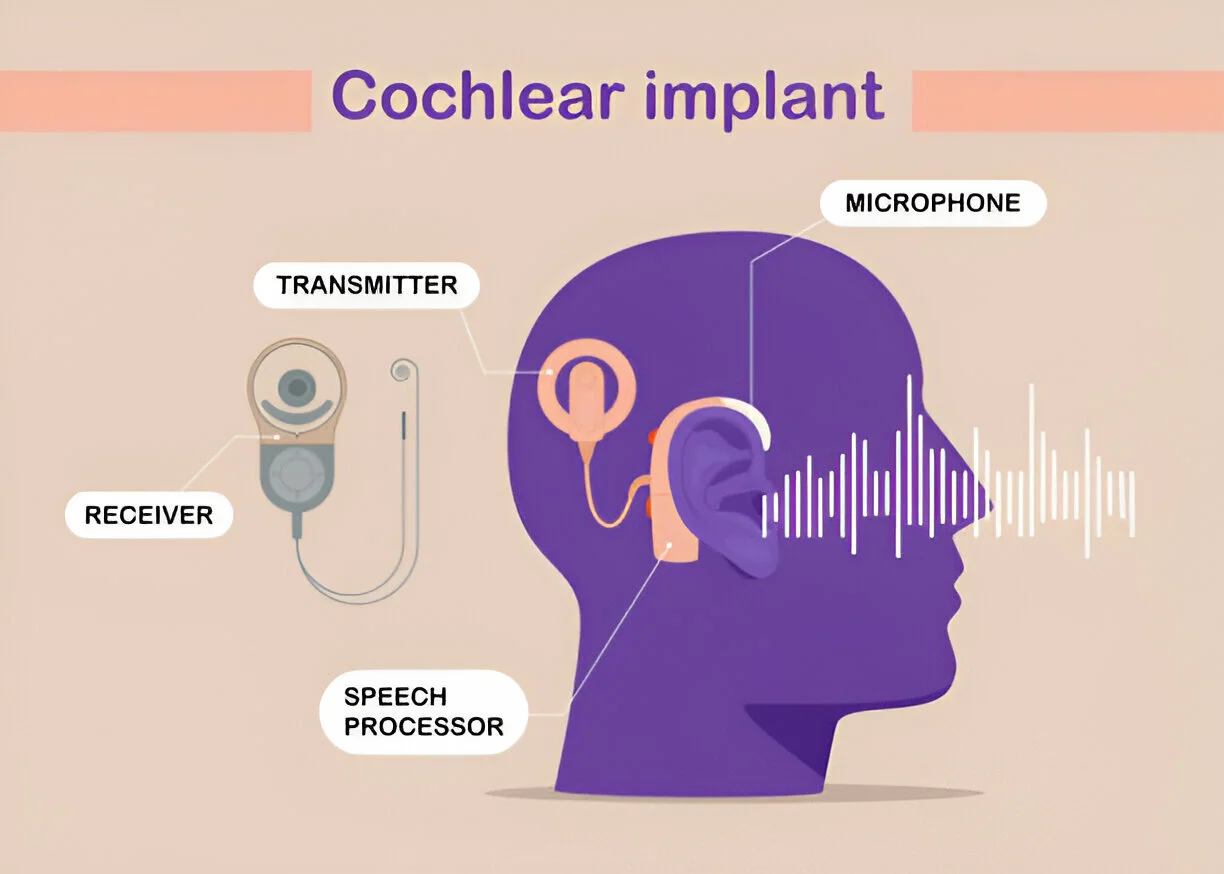Cochlear implant surgery is typically safe, well-established and even transformed the lives of many individuals with intense hearing loss, offering them access to the world of sound and ease their communication and integration into the society. Following are the pivotal points about cochlear implants.
What is a Cochlear Implant surgery:
A cochlear implant is a surgical device placed surgically that receives sounds and transmits the resulting electrical signals to electrodes installed on the cochlea of the ear. It is also known as the Bionic ear.
Learn more about our Cochlear Implant Treatment in Hyderabad
Types of Cochlear Implant surgery:
- Cochlear Implant with an external unit placed behind the ear on the side of the head which consists of a speech processor, microphone, magnet and a transmitter. It can be charged.
- Cochlear Implant with external sound processor that is attached over the ear, magnet and transmitter is placed behind the ear which is connected with thin cable wire.
Explore related Ear Treatment in Hyderabad
Procedure of Cochlear Implant:
- Before getting cochlear implants the person should undergo some of the tests such as
- A physical exam
- MRI or CT scans of the ear and head to check the cochlear and the inner ear.
- Tests for hearing, speech and balance.
- Cochlear Implant is generally executed with a medicine called general anesthesia where you feel no pain and are not aware of the surgery. Surgeons will make a small incision behind the ear and make a small hole in the part of the skull bone, called the Mastoid, where the internal device gets placed.
- Now the surgeon forms a small opening in the cochlea, in order to thread in the electrode of the internal device. Stitch the skin closed so that the internal device is under the skin.
- After the surgical site heals (generally within 2-4 weeks), the external components (microphone, speech processor, and transmitter) are fitted and activated.
- Rehab: Regular follow-up appointments for tuning the device and auditory training.
Benefits of Cochlear Implant:
- Restores hearing in kids born with deafness.
- These children develop normal speech with cochlear implants.
- Can improve the hearing sounds even in noisy environments.
- It improves language skills especially in children.
- Social interaction boosts the quality of life.
- Able to hear alarms, warnings and important sounds in the outside environment.
- Can watch TV more easily.
Risks of Cochlear Implant:
- Dizziness/Vertigo
- Infection in the surgery area
- Taste problems
- Brain fluid leak also known as CSF (cerebrospinal fluid leak).
- Headache/Numbness
- Facial Paralysis – Unable to move the face from the surgery side, things get better after some days.
- Tinnitus (ringing or buzzing in the ear)
- In rare cases failure of the device.
Parts of Cochlear Implant:
- External Components
- Microphone: Captures sound from the environment.
- Speech Processor: Converts captured sound into digital signals
- Transmitter: Sends the digital signals to the internal receiver.
- Internal Components:
- Receiver/Stimulator: Receives signals from the transmitter and converts them into electrical impulses.
- Electrode Array: Sends the electrical impulses to the auditory nerve.
Cost of Cochlear Implant:
The cost of cochlear implants differs from healthcare provider but typically ranges from ₹ 5 Lakhs to ₹ 15 Lakhs including surgery, device, and initial post-operative care.
Learn more from the National Institute on Deafness and Other Communication Disorders (NIDCD)

